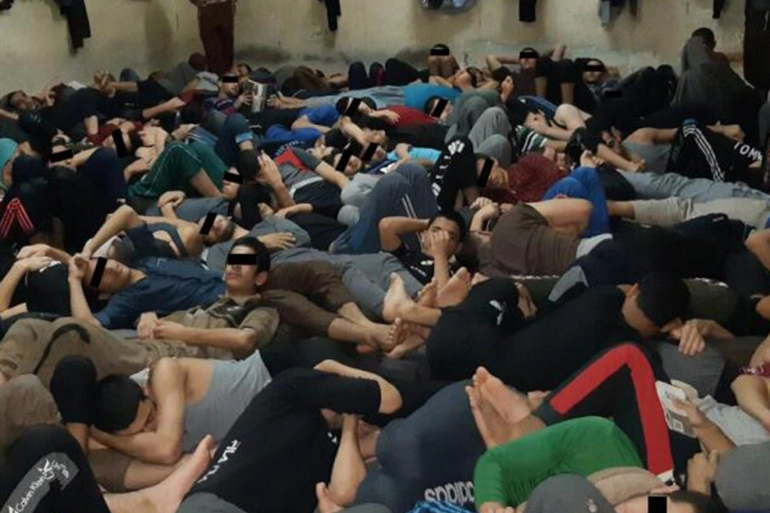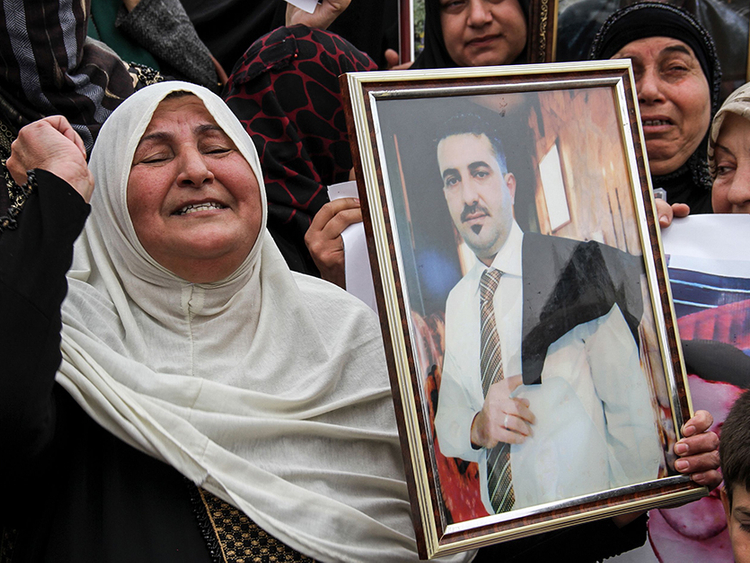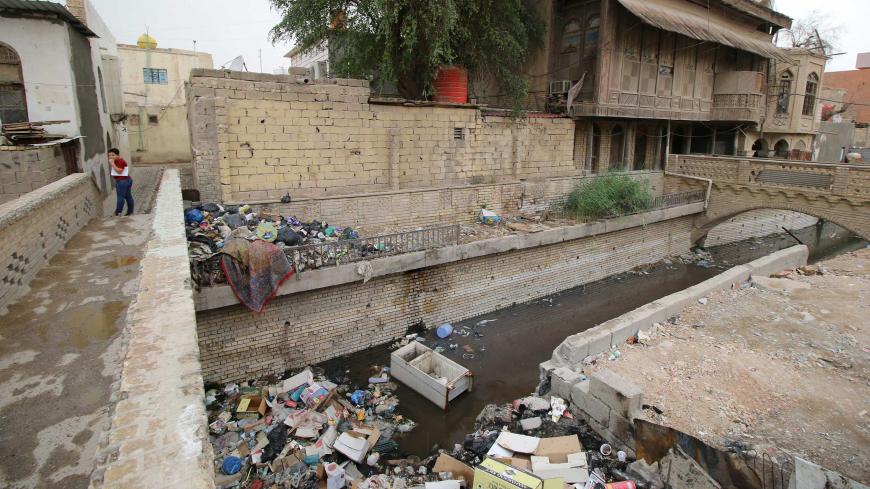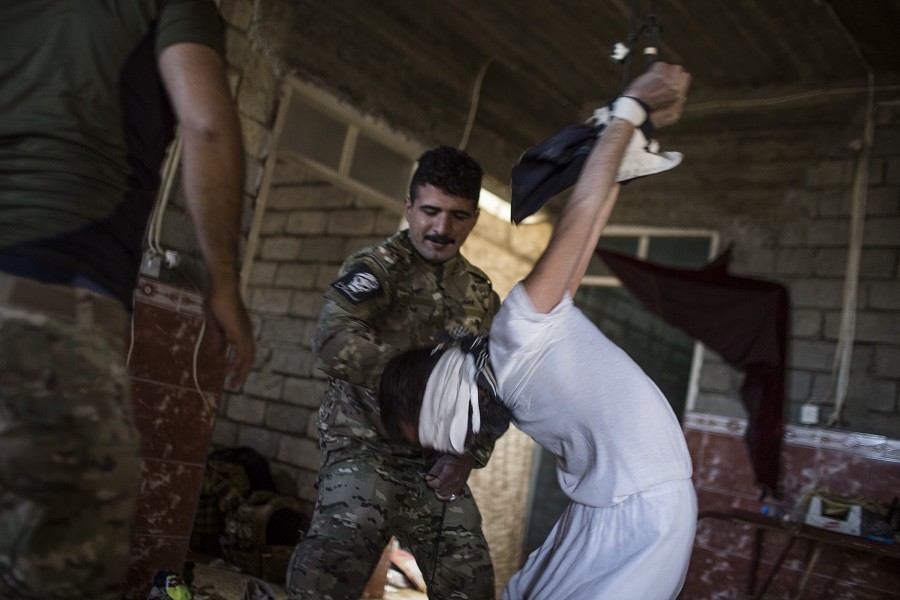The Iraqi Observatory for Human Rights documented 15 cases of families who lost their children during the invasion of ISIS in Mosul city, as well as when the Iraqi security forces entered Mosul, they are still in government detention centers, some of them in Baghdad.
The Iraqi Observatory for Human Rights expressed that the Iraqi government is still dealing with excessive neglect about the missing persons issues during the military operations that began in October 2016 in the city of Mosul and still the voices of their families and appeals are faced with indifference and ignorance.
The Iraqi Observatory for Human Rights documented 15 cases of families who lost their children during the invasion of ISIS in Mosul city, as well as when the Iraqi security forces entered Mosul, they are still in government detention centers, some of them in Baghdad.
Unconfirmed information obtained by the Iraqi Observatory for Human Rights from activists and local officials in the city indicate that there were more than 1300 missing person in the city of Mosul only during the military operations that took place to liberate the city from ISIS”.
Some of them were detained by ISIS and others were confined by the Iraqi forces when they entered the city to free them from ISIS, later then information has reached their relatives that they were with the Iraqi government in Muthanna airport prison in Baghdad.
The Iraqi Observatory for Human Rights said that the Iraqi government should state their position to the families of the missing people on their loss. They should also reveal their fate considering its their responsibility for the lives of individuals within their borders and their liability to protect civilians during military operations.
Um Fahad, a resident of Wadi Hajar in Mosul, said during an interview with the Iraqi Observatory for Human Rights
"Her 34-year-old son was kidnapped by ISIS when they controlled the city of Mosul and placed him in a detention place on the left coast of the city, but they did not kill him. His news was delivered to us by people from the city who were familiar with what was going on inside ISIS.
She also added "We lost hope and did not believe that the security forces arrested him, we expected that ISIS killed him before he escaped, but four months later we were informed by prisoners released from the custody of the security forces in Muthanna prison in Baghdad that they saw him in prison, but they could not talk to him considering the charges of his belonging to ISIS”.
"The Iraqi Observatory for Human Rights said that Iraq is a party of the International Convention for the Protection of All Persons from Enforced Disappearance, which defines the duties of states to prevent, investigate and hold enforced disappearances.
The Iraqi Observatory for Human Rights has relied on live testimony from the families of the 100 missing families, but at least 15 of them have accused the government of hiding their children in their custody. The documentation process was fielded and the photographs of the missing and their identity papers were documented.
"The Iraqi Observatory for Human Rights warned of the possibility of the government deliberately hiding these persons, which is part of enforced disappearances, until the Iraqi government demonstrates its good attitude and seriousness in protecting civilians during military operations.
International law defines enforced disappearance as the arrest of a person by State officials or agents of the State or by persons or groups acting with the authorization, support or undeclared consent of the authorities, and failure to recognize the arrest or disclosure of the person's place or condition. This prohibition entails the duty to investigate alleged cases of enforced disappearance and to hold officials accountable.
"We were watching a force wearing a military uniform arresting men in new Mosul. We did not know then that they belonged to ISIS or civilians, nonetheless they did not carry weapons or dressed in military uniform or the so-called Afghan organization. Later we knew that they were prisoners of the organization, detained in the years 2014-2016, including my son who was working in the Iraqi police before the organization entered Mosul”.
"When my son was abducted, the reasons were because they accused him of cooperating with the government and sending information to them about the movements of the organization, and when the city was liberated, he was arrested by the government forces because they believed he belonged to the organization.
So far we have not been relieved nor have we seen our son. We saw him in a video broadcast on social networking sites and we were told that the section in the prison of Muthanna airport in Baghdad.
The Iraqi Observatory for Human Rights said: "If the Iraqi government believes that they have joined a terrorist organization or participated in terrorist attacks against civilians or government forces, they should be subject to a fair trial, not to keep them for months and years in detention and absent their fate or help to avoid it. The Iraqi government violates the Iraqi law by delaying the submission of the trial”.
According to the Iraqi Code of Criminal Procedure, police can only detain suspects under a warrant issued by the court, provided that the suspect is brought before the examining magistrate within 24 hours to authorize the extension of the detention period.
The Iraqi Observatory for Human Rights said that "the families of the missing people said that no arrest warrant or arrest of their children was issued, and no one told them that they were in Muthanna airport prison”.
seven families interviewed by the Iraqi Observatory for Human Rights in Mosul said that They went to Muthanna airport prison in Baghdad at the beginning of 2018 in attempts to finding out the fate of their children, who saw some of them in videos and pictures from inside the prison, but they could not get in. The guards at the airport door told us that the names that we were asking about does not exist, but we know very well and from Sources inside the prison that they are there”.
The Iraqi Observatory for Human Rights expressed that "prolonging the concealment or disappearance of the fate of these people reduces the chances of knowing their fate. The government must answer the questions and questions of their families and provide all the information that helps them to reach the truth.




